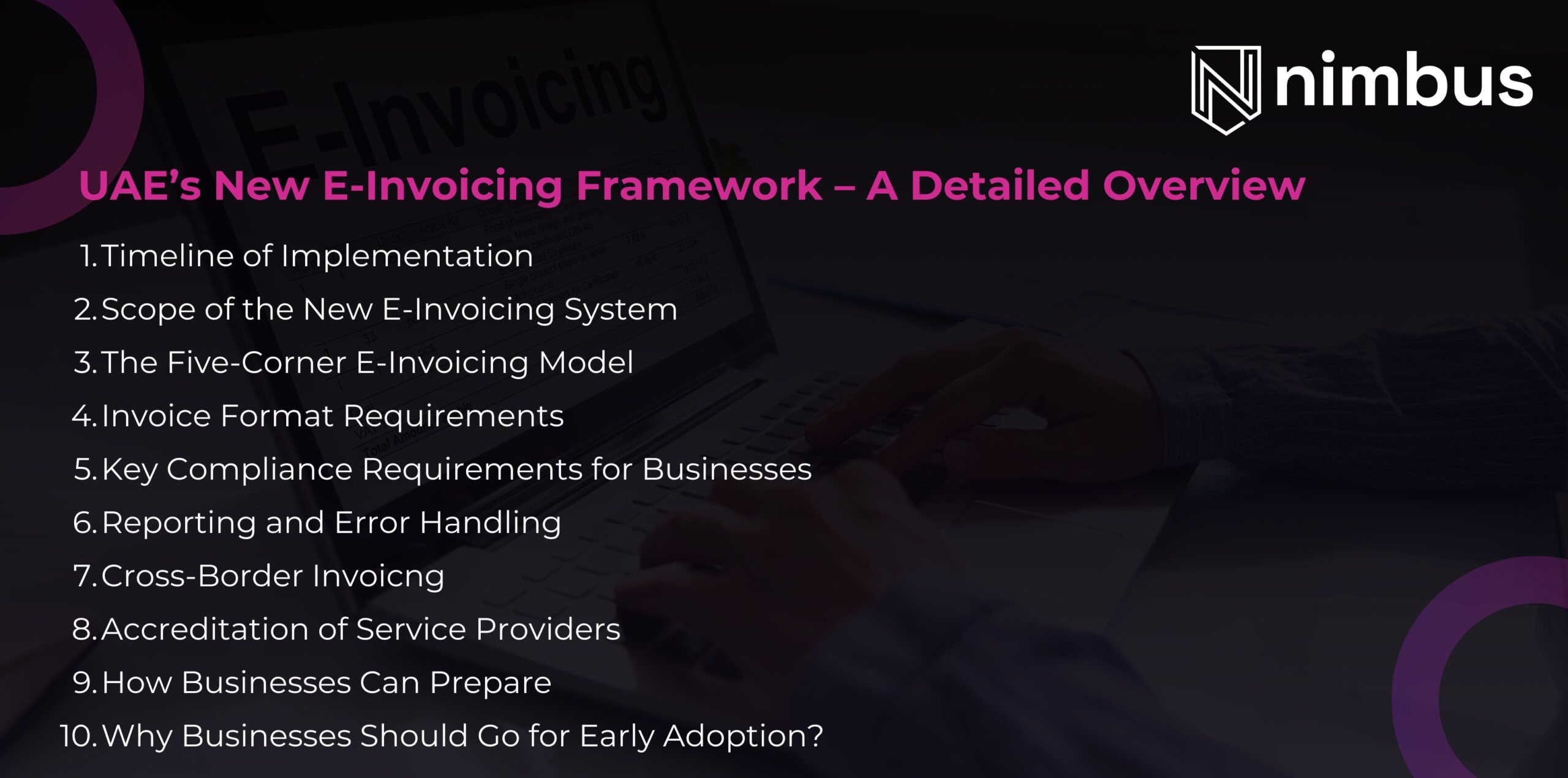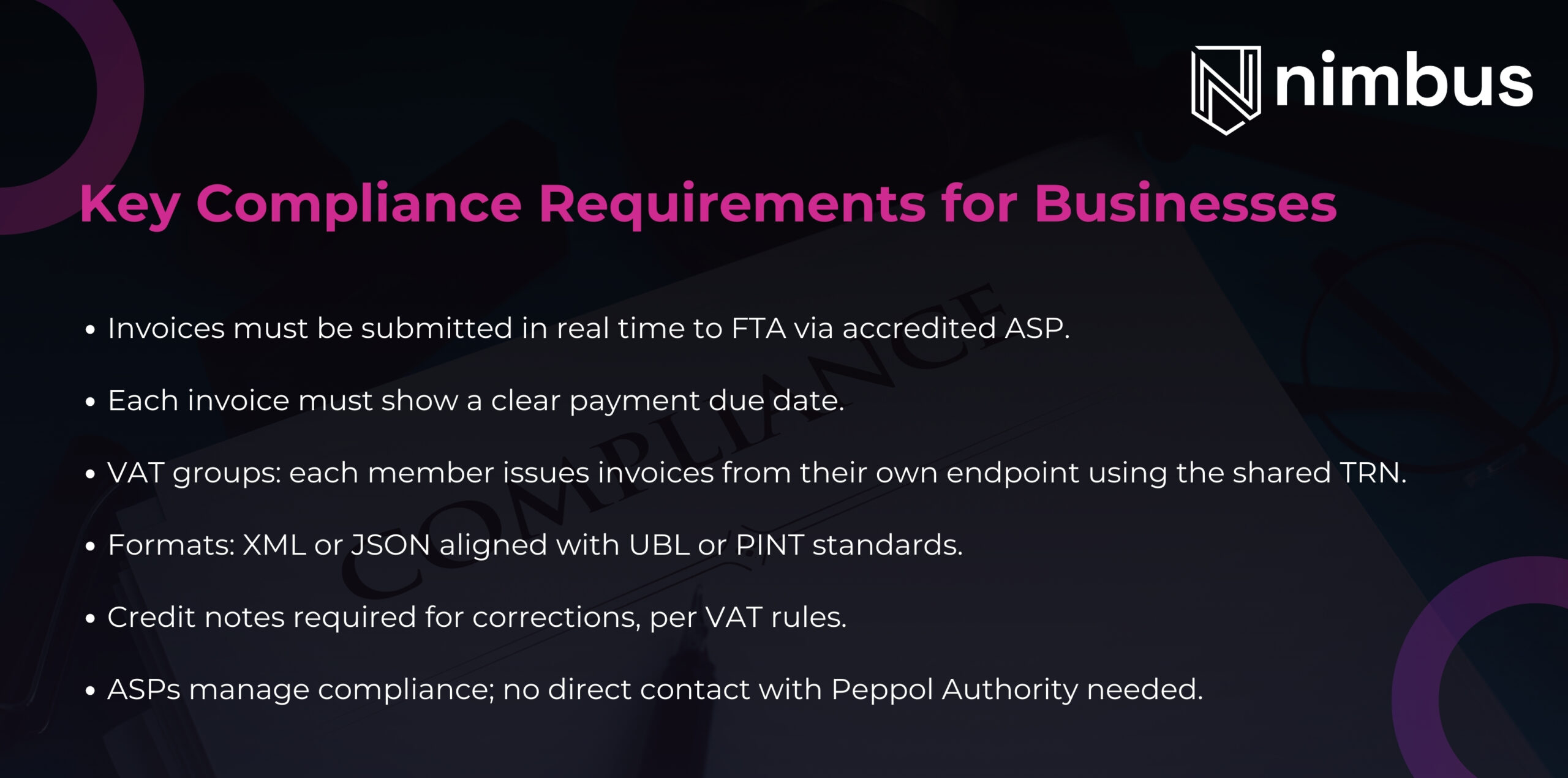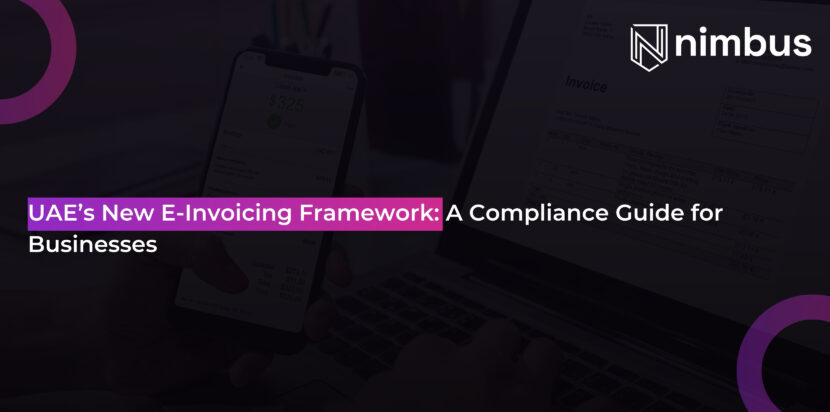The UAE is on the brink of a major shift in tax and compliance with the upcoming introduction of compulsory e-invoicing. By the second quarter of 2026, all VAT-registered businesses in the country will need to adopt a fully digital invoicing system.
This change is being driven by the Ministry of Finance and the Federal Tax Authority (FTA) to enhance transparency, streamline tax processes, and bring the UAE in line with international standards.
For businesses and for foreign investors eyeing business setup in the UAE, the new system will fundamentally change how invoices are created, shared, reported, and stored.
While the official rollout is still some time away, companies are strongly encouraged to begin preparing now to avoid technical or legal setbacks during the transition. This post explains what the e-invoicing system means, how it works, and the steps businesses can take to prepare for the upcoming changes.
UAE’s New E-Invoicing Framework – A Detailed Overview

1. Timeline of Implementation
The shift to e-invoicing is being introduced in phases.
- In late 2024, the FTA began rolling out accreditation guidelines for e-invoicing service providers.
- By the second quarter of 2025, updated legislation and system testing will be introduced.
- In the second quarter of 2026, full adoption will take effect, making e-invoicing mandatory for all VAT-registered businesses.
This phased approach gives businesses some time to adapt. However, with system integrations, software adjustments, and employee training required, leaving preparations to the last minute could prove costly.
2. Scope of the New E-Invoicing System
Once implemented, all VAT-registered businesses in the UAE will need to issue and transmit invoices electronically. The system is designed to cover:
- Business-to-Business (B2B) transactions
- Business-to-Government (B2G) transactions
Business-to-consumer (B2C) invoices are currently excluded, though this may change in the future as the system matures. Also, imports from foreign vendors where self-billing occurs will not fall under the new system.
3. The Five-Corner E-Invoicing Model
The UAE’s e-invoicing system will operate on a five-corner model using the Peppol network. This structure ensures secure and standardized exchange of invoices between suppliers, buyers, and the government. Here is how the model works:
- The issuer (business) generates the invoice. .
- The receiver (buyer) is the recipient of the invoice.
- The sender’s accredited service provider (ASP) checks the invoice and sends it simultaneously to the FTA and to the buyer’s ASP.
- The buyer’s ASP validates the data before delivering it to the customer.
- The FTA’s platform serves as a central repository, logging the invoice for oversight.
While the FTA will not validate every detail of the invoice, the system will operate under a Continuous Transaction Controls (CTC) framework to enable near-real-time reporting and oversight.
4. Invoice Format Requirements
Invoices under the new regime must be issued in structured, machine-readable formats. Accepted formats include:
- UBL 2.1 (Universal Business Language)
- UAE-PINT (Peppol Invoice Standard)
- XML or JSON formats
The following formats will no longer be valid once the system goes live:
- PDFs or Word documents
- Scanned images (JPG, TIFF, or similar)
- HTML invoices sent via web pages or emails
- Paper invoices transmitted via fax or manual submission
Every e-invoice must include the Tax Identification Number (TIN) of both the supplier and the buyer, ensuring clear identification across the network. For VAT groups, each member must have its own digital endpoint, even if they share a common Tax Registration Number. This ensures transaction-level traceability.
5. Key Compliance Requirements for Businesses
Under the new framework, businesses will need to comply with several important requirements:

- Invoices must be submitted in real time to the FTA through an accredited ASP.
- Each invoice must clearly state the payment due date.
- For VAT groups, every member must issue invoices through their own endpoint while reflecting the group’s shared TRN.
- Businesses must use XML or JSON formats in line with UBL or PINT standards.
- Credit notes must be issued for corrections, consistent with current VAT procedures.
- Direct interaction with the Peppol Authority will not be required; ASPs will handle compliance and communication.
6. Reporting and Error Handling
In case of technical disruptions, accredited service providers will be required to queue and transmit data once connectivity is restored. Batch submissions will be allowed under defined Service Level Agreements.
The TIN will be the main business identifier across submissions, so companies not yet registered with the FTA must complete registration before participating in e-invoicing.
7. Cross-Border Invoicng
For export transactions, if the foreign buyer is registered in the Peppol network, their electronic endpoint must be included. If not, a dummy endpoint can be used, and the exchange will not occur through Peppol.
Even in such cases, the seller’s service provider must report the invoice to the FTA. The seller may also send a PDF invoice to the foreign buyer outside the Peppol system.
Foreign buyers are not obligated to register with a UAE e-invoicing provider unless required by UAE VAT or corporate tax laws.
8. Accreditation of Service Providers
Only accredited providers will be permitted to operate in the UAE’s e-invoicing system. To qualify, a provider must:
- Be legally established in the UAE with a minimum paid-up capital of AED 50,000.
- Have at least one year of operational history.
- Demonstrate technical capacity to implement UAE-PINT standards.
- Ensure real-time or near-real-time data transmission.
- Guarantee strong data security and compliance with ISO/IEC 27001 certification.
- Maintain continuous availability and archival systems.
Accreditation will involve system audits, sandbox testing, and approval by the FTA.
9. How Businesses Can Prepare
Although the system becomes mandatory only in 2026, businesses, both existing and ones planning UAE company formation should begin preparation immediately. Recommended steps include:
- Assess current invoicing systems for compatibility with XML and UBL formats.
- Engage with accounting and auditing partners to identify compliance gaps.
- Map out all invoicing flows, including exports and intra-group transactions.
- Upgrade ERP and accounting software to enable digital signatures and timestamping.
- Train finance, legal, and tax teams on new requirements.
- Stay updated on upcoming FTA circulars expected in 2025.
- Consider joining pilot programs to reduce risks during rollout.
10. Why Businesses Should Go for Early Adoption?
The new e-invoicing system will transform how businesses in the UAE handle VAT-related processes. By mandating real-time digital reporting, the FTA aims to ensure transparency, efficiency, and accuracy in tax administration.
But early adoption and preparation is required, especially for investors going for company formation in the UAE as it will help in:
- Smoother transition with fewer technical disruptions
- Reduced compliance risks and penalties
- Improved internal processes and reduced reliance on manual invoicing
- Stronger alignment with global best practices in tax compliance
Waiting until 2026 could mean rushing system upgrades and staff training under pressure, which increases the risk of mistakes and non-compliance.



